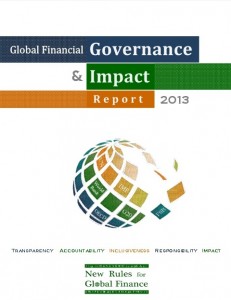March 31st, 2014
Tax expenditures—government spending through the tax code, also called loopholes—have increased dramatically
in the last twenty years. In some ways tax expenditures are good; for example, they can be used as incentives to encourage corporate and private behavior that provides a social benefit. On the other hand, these expenditures both lower government revenue and can skew the horizontal and vertical equity of our tax system. For example, corporate loopholes can result in dramatically different effective corporate rates for nearly identical companies.
These loopholes have dramatic effects on effective tax rates. While the United States has a statutory tax rate...
March 28th, 2014
For fifteen years, eight goals have represented the yardstick by which development is measured. These are the Millennium Development Goals (MDGs) adopted in the United Nations Millennium Declaration at the beginning of the century, and represent a commitment to a noble new partnership to drastically reduce poverty worldwide. It is through this Declaration that all 193 member states of the United Nations and 23 organizations have agreed to achieve a set of eight goals by 2015.
Now that we are rounding into the last year of the Declaration, the UN and other aid organizations are developing the
Continue Reading
March 28th, 2014
 This post originally appeared on the blog of FTC member, Tax Justice Network.
This post originally appeared on the blog of FTC member, Tax Justice Network.
Last year, our colleagues at New Rules for Global Finance published a ground-breaking report on the governance and accountability of the leading financial rule-setting institutions, including those covering international tax cooperation, such as the G20, the OECD, the UN Tax Committee, and the IMF. Their report is available
here.
March 27th, 2014

The months leading up to November’s G20 summit in Brisbane, Australia are littered with conferences and gatherings to develop a more narrow focus of what priorities the Group of 20 wants to highlight. You can easily have a say, through the C20, a civil society platform that contributes to the G20 discussion. But be quick! The commenting period for the ongoing C20 dialogue closes on April 6th.

